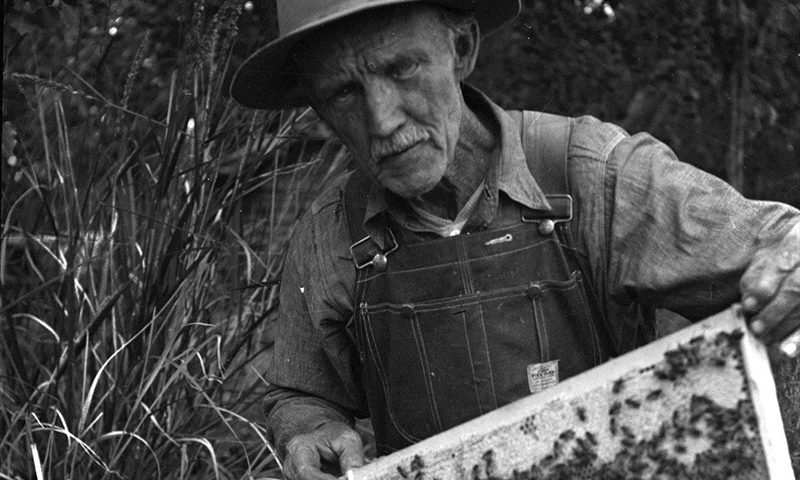Beekeeping has a rich local history. In a 1898 issue of the Deseret News, Franklin Wheeler Young stated that “bees do well here.”
Since sugar had to be shipped long distances, it was very expensive for early pioneers to buy. Many settlers brought a “stand of bees” with them to produce honey for their family and to help pollinate crops, orchards, and gardens. Families traded honey for household goods.
By 1911, there were 24 colonies of bees in Fruita alone. Cal Pendleton, Leo Holt, and Jed Mott were Fruita residents who kept bees. Local histories speak of honey and beekeeping across the county from Fremont to Hanksville.
George Thorne of Vernal Utah was in the bee business in the late 1800s and president of the beekeepers association in 1900. The photo shows Thorne working with his bees in the early 1900s.
Young people grades three and up are invited to participate in 4-H Spark Squad after-school programs focusing on our heritage of honey, bees, and beekeeping. Youth will learn about native bees along with the honey bees brought by pioneer families. Youth will make honey snacks, a bee house, a beeswax candle, and more. Activities will take place from 3:00-5:00PM at the Loa Civic Center April 9, 11, 23, and 25.
A free community dinner is open to the general public and will take place on Wednesday May 1 at 6PM. The evening will include demonstrations and exhibitions exploring our cultural heritage of honey, bees, and bee keeping. Come make a beeswax candle, a bee house, and participate in a honey tasting.
If you’re planning to join us, please call the USU Extension/4-H Office at 435-836-1312 to let us know how many will participate in the after school program and/or the dinner.
If you’re a bee keeper or have bee memories or artifacts to share, we encourage you to exhibit or demonstrate at the dinner. Or, send us historical photos of your family history. Contact Project Director Annette Lamb at info@entradainstitute.org for more information. This project is made possible through a generous grant from the National Endowment for the Humanities, the Entrada Institute and Wayne County USU Extension. LIKE us at facebook.com/sparkinghumanities. – Annette Lamb
Photo Credit: George Thorne Bee Keeping (1910s). Used by permission, Uintah County Library Regional History Center, all rights reserved.
Go to the Insider to read the published article.
